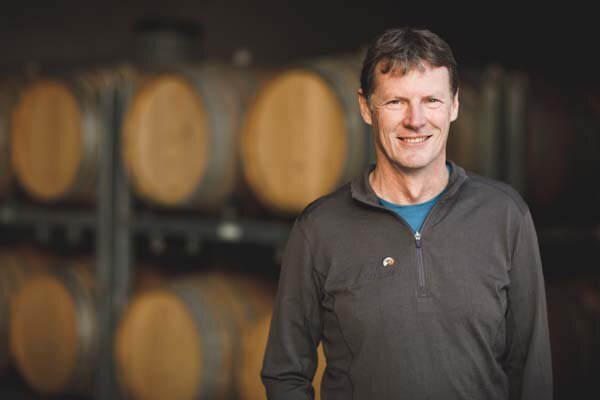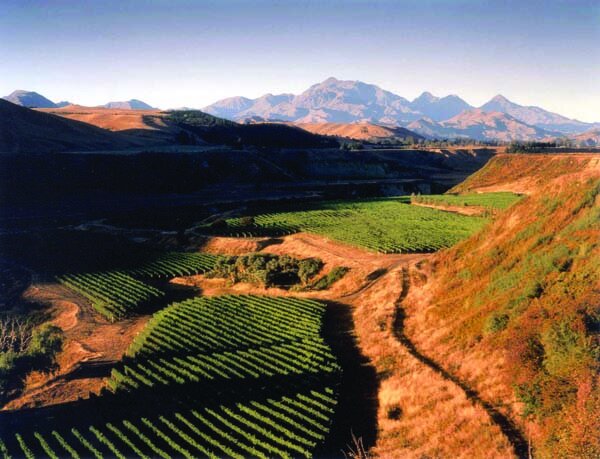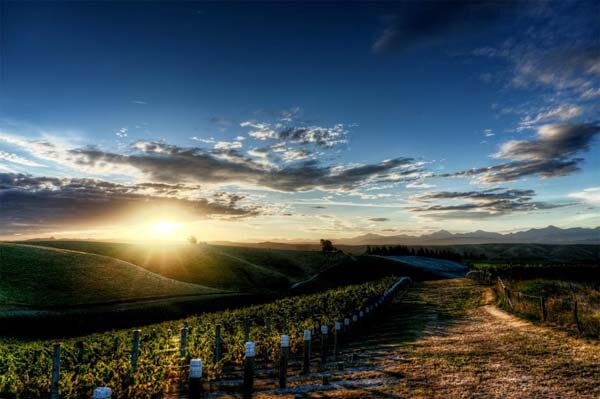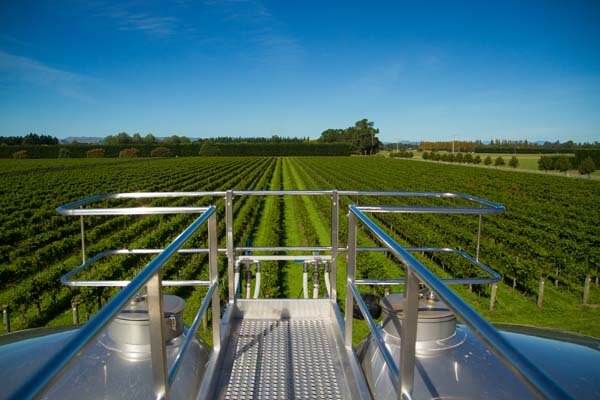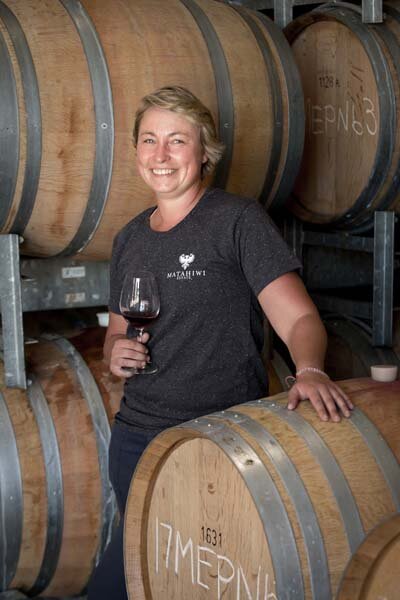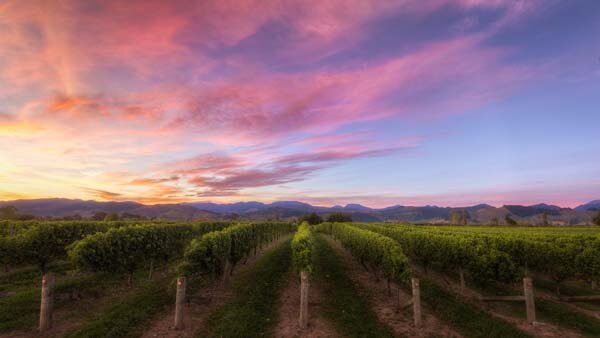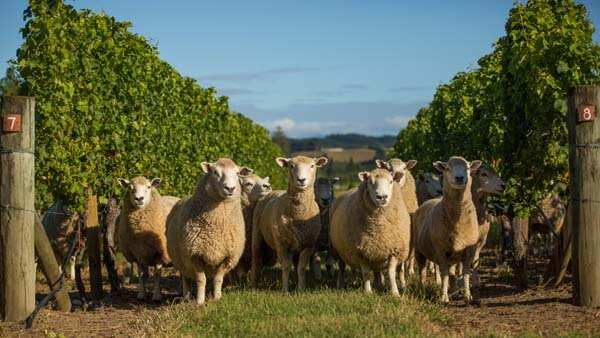Celebrating Sauvignon Blanc Day Across New Zealand
Every year, those of us who specialize in wines from New Zealand get together for the celebration of International Sauvignon Blanc Day, which takes place on May 1st. Obviously, this year is a little bit different. But with the incredibly warm temperatures we’ve had this week in California, we’re all feeling the call to sit outside on a warm day with a refreshing glass of Sauvignon Blanc.
And when choosing a Sauvignon Blanc, I inevitably end up grabbing a bottle from New Zealand. With bright acidity and hyperbolic tropical flavors of passion fruit and citrus, it always over delivers in value and has a thirst-quenching quality like no other. But despite the fact that New Zealand Sauvignon Blanc is so distinctive from those made elsewhere, New Zealand itself has plenty of diversity among wines made across the country. New Zealand geography and climate vary dramatically among the two islands, and there are multiple regions and microclimates with subtle characteristics that distinguish each wine from place to place. I would love to highlight a handful of different places that each express their own unique character, but still showcase New Zealand Sauvignon Blanc for its truly distinctive terroir.
Marlborough
The success of the New Zealand wine industry is inextricably tied to Marlborough Sauvignon Blanc. Outside of a handful of outliers, New Zealand arrived on the global wine scene through Marlborough Sauvignon Blanc, which was quickly recognized for its explosive aromatics and bright tropical notes. Today, nearly 70% of all the wine made in New Zealand is made in Marlborough, and where Sauvignon Blanc still reigns supreme. A fantastic example of what I would consider a “classic” Marlborough profile is the 2019 Nautilus Sauvignon Blanc Marlborough ($14.99). Nautilus is one of the rising stars in Marlborough whose wines have been getting better and better with each vintage, and, with the exceptional 2019 vintage, this is certainly their best effort today. Full of round passion fruit and ripe pineapple notes, there is a crisp green snap to this and an overall expression that captures everything you’d want from a Marlborough Sauvignon Blanc and more.
Nelson
To the not-so-distant northwest of Marlborough is the small winegrowing community of Nelson. Home to only a few dozen wine growers, Nelson has been producing wine for almost two decades. A Mediterranian climate provides Sauvignon Blanc the opportunity to slowly and evenly ripen here, and its distance from Marlborough has made it a home for small upstart producers like Neudorf, Greenhough, and Middle-Earth. These wineries make small, estate-grown wines that are handcrafted with the attention to detail and finess that you’d find among the most expensive Sauvignon Blancs across the globe. But I sincerely tell you that the 2019 Middle-Earth Sauvignon Blanc Nelson ($9.99) is a deal not to be missed. Elsewhere this wine is sold for $18.99, but we were able to secure this at unbelievable pricing. This wine showcases two hallmarks of New Zealand Sauvignon Blanc: a bright, acid-driven core of citrusy lemon sorbet, lime, and grapefruit balanced by a softer aromatic quality of fresh-cut green grass. A touch more elegant than what you’ll find in Marlborough, but a deal that you cannot miss.
Wairarapa
Wairarapa is the name given to the southeast corner of the North Island. It is the home of Martinborough, one of the world's great destinations for Pinot Noir in the Southern Hemisphere, but extends northward into the wide, windswept valleys along the Wairarapa rivershed. I hadn’t given much thought to the wines from this dry, frigid area of New Zealand until I tried the 2019 Matahiwi Sauvignon Blanc Wairarapa ($10.99). This is exquisitely well-made for its price. Cooler temperatures lead to softer aromas of green apple, elderflower, and wet stone. A healthy dollop of residual sugar puts this just shy of off-dry and makes this wine totally effortless to drink.
Martinborough
Now, Martinborough may lay claim to some of the best Pinot Noir producers in New Zealand, it also boasts remarkable linear and delicious Sauvignon Blanc as well. Owned by the Peabody family, Craggy Range focuses exclusively on unique, high-quality, distinctive sites throughout New Zealand. In Martinborough, their vineyards sit on the Te Muna Terrace. Sheltered from the otherwise harsh winds that bring icy temperatures to the Martinborough Terrace, Te Muna lies behind a small range of hills that protect the vines from winds, and allows Sauvignon Blanc grapes to develop a fuller, richer style of wine. The 2019 Craggy Range Te Muna Road Sauvignon Blanc ($18.99) is minerality in a glass. Wet stones predominate, with ripened honeycrisp apple, kaffir lime, and a creamy lees quality, this is Sauvignon Blan from New Zealand made at its best, by the best.
Hawke’s Bay
Of all the places you’d expect great Sauvignon Blanc in New Zealand, you wouldn’t expect Hawke’s Bay. This is the home of Gimblett Gravels, of varieties more suited to bold, warm climate wines like Cabernet Sauvignon, Merlot, and Syrah. But then there is the 2018 Te Mata Cape Crest Sauvignon Blanc ($24.99). Te Mata is the only winery registered as a historic landmark in New Zealand. They have been in continuous operation since 1896, and are a blockbuster producer of New Zealand wine, from their highly regarded Bullnose Syrah to the Coleraine Bordeaux Blend, which is widely considered the best red wine produced in New Zealand. The Cape Crest Sauvignon Blanc has several unique characteristics as a wine. First, it’s not a Sauvignon Blanc, it is 90% Sauvignon Blanc, 6% Sémillon and 4% Sauvignon Gris—a traditional blend found only in the dry whites of Bordeaux. Additionally, like Bordeaux blend, it is all barrel fermented with 30 percent new French Oak. This is Sauvignon blanc on steroids. The warmer, more northerly climate gives big, bold fruit flavors while the time in oak gives wild herbs, passion fruit, pineapple, and mango. This is an opulent, dynamic, and expressive wine that can go toe-to-toe with some of the best Sauvginon Blanc across the world. And at $25, it is an unequivocal value.
- Thomas Smith


